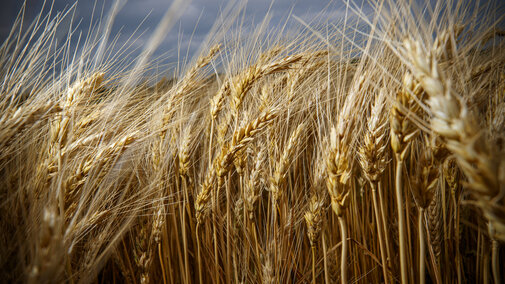The Nebraska Crop Improvement Association, with a history going back to the early 20th Century, has long carried out a central task for the state’s agriculture. The NCIA’s laboratory tests and field inspections verify that Nebraska-produced seed meets the required certification standards.
In the 21st Century, the NCIA, a nonprofit affiliate of the University of Nebraska, continues that mission, working with Nebraska growers who produce seed best suited for local soil and climate conditions across the state. The association also offers educational outreach and, on request, auditing of the seed production process.
When Nebraska farmers see a seed bag marked with the blue tag from NCIA, they have the assurance that the seed has received unbiased third-party quality assurance, says Steve Pageler, the association’s certification manager. The blue tag means the seed meets the standards for germination, purity and variety identity.
Hard red winter wheat is the crop most commonly checked by the association. Other small grains it handles include triticale, oats and rye. The seed certification work also includes crops such as hybrid corn, popcorn and some native grasses such as big blue stem and little blue stem.
With Nebraska-certified seed, “you know what you're getting,” Pageler says. “It's been around a long time. So, when a farmer picks up our seed book, they can find who has certified native grass or wheat seed. They know what they're getting and who they're buying from, and they're not going to get a cold call from somebody later.”
The association’s membership consists almost entirely of seed producers. In general, “this is your neighbor who grows seed on his place,” Pageler explains. “Oftentimes the seed is from a public breeding program. He is the dealer, the grower and the cleaner.”

